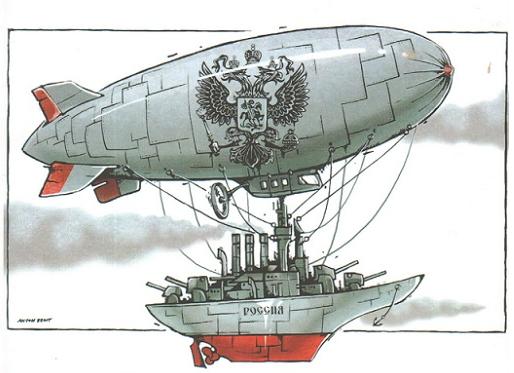Ukraine has announced preparations for the Crimean Platform summit, scheduled for 23 August 2021. Amongst its objectives, Ukraine aims to consolidate and properly organize sanctions mechanisms related to occupied Crimea in both the domestic and international spheres. The domestic part is arguably the most problematic of these two: it turns out Ukraine currently lacks any comprehensive sanctions policy towards occupied Crimea. A new analysis of the dealings of Viktor Medvedchuk, Vladimir Putin's top-tier ally in Ukraine, reveals many of these shortcomings.
On 19 February 2021, the Ukrainian Security and Defence Council (RNBO)imposed sanctions that block the legal entities of Viktor Medvedchuk and Taras Kozak, two Ukrainian MPs of the Opposition Platform – For Life party. Two weeks later, the same RNBO enacted personal sanctions against Medvedchuk and his wife.
- Read also: Ukraine sanctions TV channels of Putin’s top-tier ally in Ukraine. Here is what they broadcasted
- Ukraine sanctions “Putin’s point man” Viktor Medvedchuk and wife
Vladimir Putin is godfather to Medvedchuk’s daughter, while Taras Kozak is the official owner of formerly the three biggest pro-Russian TV-channels in Ukraine, which are now closed.
Though the majority of Ukrainian politicians, activists, and public intellectuals supported the sanctions, public debate arose over the legal mechanisms used to pass them.
In particular, there are concerns whether:
- the sanctions are legally justified;
- they will be effective;
- they can be challenged by the courts.
Consequently, this case drew attention to the weaknesses of the Ukrainian sanctions policy.
These problems are not limited to Ukraine. Journalists at Realnaya Gazeta have demonstrated that Medvedchuk is also effectively bypassing US sanctions, selling oil from Russia to the USA, then using this money to fund his propaganda campaign in Ukraine.
“Financing terrorism” – the only effective charge Ukraine can apply to sanction Ukrainian citizens
While Ukraine has imposed a wide range of sanctions on both Russian individuals and legal entities since 2015, as have the US and EU since 2014, the country has virtually no legal mechanisms to sanction its own citizens.
Ukrainian law does not yet include activities such as producing and distributing pro-Russian propaganda, whitewashing and justifying occupation, and conducting business in occupied territories as preconditions for sanctions or criminal investigation.
SBU conducts its investigation against Medvedchuk and Kozak on the basis of this article. As well, the latest sanctions were imposed by the National Security and Defence council (RNBO) also in connection with it.
Sanctions were justified by facts of Medvedchuk’s Russia-based companies importing oil to occupied Donbas, as well companies linked to Medvdechuk illegally exporting coal from occupied Donbas to Russia, in particular Donskie Ugli.
Medvedchuk is involved in importing oil into occupied Donbas through the company Novoshakhtinsk Petroleum Products Plant (NPPP), which is owned by his wife, Oksana Marchenko.
NPPP is located in Russia's Rostov Region, conveniently less than 10 km from occupied Donbas. In 2019, the company’s profit increased sixfold; that same year, interruptions in gasoline and diesel fuel supply, which had regularly disrupted occupied Donbas since 2014, finally ceased.
Furthermore, in 2017 the oil extraction rights at Gavrykovskiy oil field located in the Khanty-Mansi Autonomous Okrug and one of the three largest Russian oil fields, were transferred to Marchenko with direct support from Russian officials. Oil extraction began there in 2018.
As for exporting coal from occupied Donbas to Russia, journalists at Realnaya Gazeta have calculated the scope of this operation by juxtaposing openly published data from both Ukrainian and Russian customs services.
According to records, Russia considers imports from occupied Donbas as Ukrainian, likely due to the Russian narrative of a Ukrainian civil war. The Ukrainian side, on the other hand, has no control over Donbas and, consequently, no data on coal exports from Donbas to Russia.
Therefore, Ukrainian customs data shows that no coal was exported to Russia in 2020. But Russian data from the same year lists 177 cases containing approximately 2.5 million tons of coal worth $81.1 mn imported from occupied Donbas to Russia.
Though Ukraine’s Security Service claims it has classified evidence demonstrating Medvedchuk’s control of the coal industry in Donbas, there is no publicly available information proving a direct link. Indirect evidence is available through several personal connections between Medvedchuk and various coal company managers in Donbas, in particular the local company Donskie Ugli.
No sanctions for business in Crimea
It is telling that Ukraine’s RNBO used Medvedchuk’s clandestine activities in Donbas, rather than his far more overt business activity in Crimea, to justify using the article on financing terrorism to impose sanctions.
This is because Ukraine has not employed firm measures against its citizens who conduct business in occupied Crimea.
Lawyer Vitaliy Vlasiuk explains this problem:
“Sanctions [related to Crimea] are not well regulated in the Ukrainian laws. There remain ways to bypass sanctions. I would even say that sanctions are more about reputation. Those companies that respect themselves and want to work with serious western companies, those won’t enter Crimea... Others are eager to try various schemes to conduct business in Crimea despite sanctions... We are still not ready for the existential war. We don’t have clearly defined responsibility for bypassing sanctions. Only in 2015 our parliament adopted the responsibility for financing terrorism. It is this law that is often used in criminal proceedings in Ukraine, it allows to beat severely. But on the lower level we have no responsibility [for conducting business in Crimea].”
One of his companies, Tavria Invest, has a nominal capital of RUB 1.2 billion and regularly pays substantial taxes to support the occupied Crimean budget.
Through Tavria Invest, Medvedchuk owns an 18-story resort hotel on the Yalta shoreline in Crimea. The hotel was constructed by Kyiv company Triumf, whose website contains photos of the hotel at various stages of construction. Construction started before 2012 but did not stop after the occupation of Crimea in 2014. Medvedchuk openly declared all this activity in his income declaration as an MP. Neither he nor Triumf faced sanctions for conducting business in Crimea.
According to Andriy Klymenko and Tetiana Huchakova, experts on Crimea from Black Sea News,
“The Law of Ukraine On Sanctions does not provide any mechanism for monitoring the implementation of sanctions, or a mechanism for liability for their violation, or a clear management system.”
Klymenko and Huchakova also claim that Ukraine has not yet used sanctions to their full capacity as a weapon of economic warfare against Russia. Rather, they were used selectively for show.
That is, sanctions are imposed occasionally, often due to pressure from civil society. Further, there is little infrastructure, both legal and administrative, to execute them.
Such fundamental measures as Ukrainian blockades of water and transportation to Crimea had and continue to have a significant impact on Russia. However, economic sanctions involving particular legal entities can be used much more effectively.
Oil for the USA despite US sanctions
The most commonly-known example of Medvedchuk’s violation of international sanctions is export of Russian oil to Western countries, including the United States.
Andriy Klymenko, editor in Chief of Black Sea News provided for Realnaya Gazeta an analysis of the traffic patterns of ships belonging to Rosewood Shipping and Sonor LTD, Medvedchuk’s companies that are registered to his wife. According to Klymenko:
"Among the ships that they own, most are relatively small tankers with a maximum capacity of 5-6,000 tons. These are ships of the 'river-sea' class. But there are also three supertankers with a length of about 220-260 meters and a capacity of 70,000 to 110,000 tons. These are huge ships – Boray, Sanar 7 and Sanar 8.
The traffic of ships looks like this. Supertankers arrive at an unofficial roadstead in the neutral waters of the Black Sea near the Kerch Strait. And smaller tankers bring oil to them from the Russian ports of Azov. In the open sea, oil is pumped into supertankers, and they are sent to the ports of the 'first world.' Judging by the routes of these giant tankers, they deliver oil products to countries such as the USA, France."

Other direct violations of international sanctions include the notorious supply of turbines of the German concern Siemens for the construction of power plants in Crimea. As well, representative offices of international brands operate in Crimea, even though their offices are only authorized to operate in other Russian regions.
In addition to ordinary entrepreneurs, Ukrainian MPs such as Yevhen Balytskyi, Maksym Yefimov, and aforementioned Kozak and Medvedchuk also conduct business in Crimea. They are able to do this because Ukrainian legislation has not yet provided the capabilities to use sanctions to their full potential.
Klymenko believes sanctions should be used not only in selective trade battles with the Russian Federation but also as tools of large-scale economic warfare, to inflict losses and damages significant enough to prevent continued Russian aggression.
The statement "Sanctions are an economic war against Russia" indicates that any trade with Russia is impermissible. Both Ukraine and the international coalition should adopt this viewpoint, at least strategically.
Progress, including proposal to abandon the law of an economic free zone in Crimea
Though the delays in clear laws to prosecute Ukrainians conducting business in Crimea have slowed progress, it is not too late to implement changes. Recently, Ukraine and its Ministry of Foreign Affairs have started revising Ukraine’s sanctions policy regarding Crimea. The creation of the post of Special Representative on Sanctions with an ambassador ranking is promising in efforts to coordinate international sanctions.
The hardest work to be done is domestic, though. Ukraine's MFA has already announced that it will propose to repeal the law allowing the free economic zone in Crimea in preparation for the Crimean Platform Summit.
Additionally, the law de-facto allowed the mass import of Ukrainian goods to Crimea, and from there to Russia, bypassing sanctions and duties.
Meanwhile, despite poor management, existing sanctions already cost Russia about 2% of their GDP growth annually. Successful sanctions could prove far more valuable in the fight against Russian interference.

Read also:
- Ukraine takes long-overdue action against major domestic pro-Russian actors
- Russia’s replacement of population in occupied Crimea violates Geneva Convention – UN report
- Ukraine wins crucial round against Russia over Crimea in the European Court of Human Rights
- Legal battle: How Ukraine sues Russia in international courts
- Crimeans have tap water only six hours a day as all Russian attempts to hydrate occupied peninsula fail
- Occupied Crimea not only part of Ukraine suffering from water shortages, Balabukh says
- Is Crimea now costing Russia more than it is worth?
- Zelenskyy prolongs ban on Russian social networks





